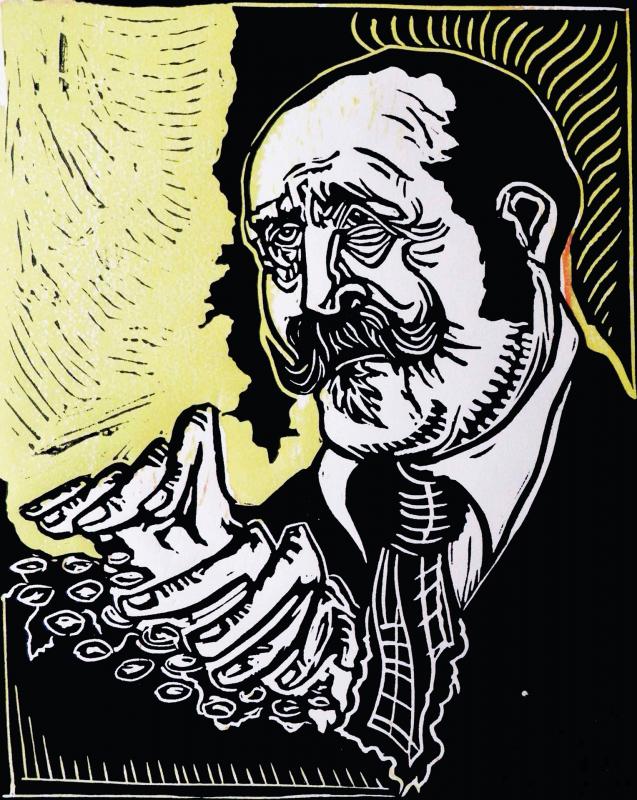Peter Mann: Peter studied history and literature at Wesleyan University, and moved to San Francisco in 2004, where he met his wife teaching art at a summer camp. She introduced him to printmaking and he took to it like a fiend. He started exhibiting his work locally in 2009. In the meantime, he is working on a doctorate in European history at Stanford. When not doodling mustached figures in the margins of library books, he taps out a dissertation about early twentieth-century German and Spanish intellectuals and the problem of decadence.
His current art projects include drawing on every page of Don Quixote and carving woodcut illustrations to Thomas Mann’s 1924 novel, The Magic Mountain.
From the Artist:
I seek the fictitious company of deranged scholars, down-at-heel aristocrats, lost explorers, and other pedigree breeds of broken men that abound in history and literature. In backward-looking portraits that tend toward iconography, I indulge my love of types, where the messy reality of past existence is transformed into the aesthetic object of historical biography. I’m interested in history as a symbol, with its aura of pathos and irony, nostalgia and terror.
In these particular prints, part of a larger series of woodcuts, linocuts, and lithographs from 2010 called “The Quijote Syndrome,” I explored my fascination with bleak prospects, anachronism, and absurd heroism—a fascination I’ve easily cultivated as both an artist and a graduate student in the humanities. Specifically, I gravitated toward people tethered to their typewriters while history leaves them in the dust. I wanted to express my belief, however unduly cynical, that today any writer, intellectual, or humanist is necessarily a Quixote figure—a ridiculous, noble creature from a bygone age, a wayward hidalgo wearing a washbasin on his head. That conviction came from my growing obsession with Cervantes’ novel and its legacy in conjunction with the countless hours of my own life recently spent chained to a blank page waiting to be filled.
Under the gaze of these forlorn mustachioed men, my own doomed, absurd efforts felt all the more laughable, yet somehow more tenable. I had created my own community of Quixotes, my own tradition of absurd heroes. You are welcome to join us.
-Peter Mann
To see the rest of the series and more art by Peter Mann, visit www.pmannia.com

